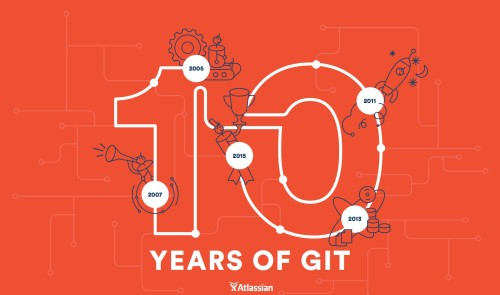Linus Torvalds shares some of his thoughts on software project management in this interview. I have two favorite bits in there. One is on the obsession of the code quality control:
“The other thing—and it’s kind of related—that people seem to get wrong is to think that the code they write is what matters,” says Torvalds. Most software development managers have seen this one. “No, even if you wrote 100% of the code, and even if you are the best programmer in the world and will never need any help with the project at all, the thing that really matters is the users of the code. The code itself is unimportant; the project is only as useful as people actually find it.”
Just a few years ago I would have completely missed this point. Or argued passionately with it. But not anymore. After spending the last few years working with very dynamic software projects, I realized that no matter how much effort you spend on the code quality control, it will still degrade with time. And even if it becomes horrible and hard to look at, it will still work and you’ll still be able to maintain it. But the time and effort that was lost would have been so much more useful in supporting user requests and improving their experiences.
Even knowing this now, I am still a slave of my habits. I still need to control myself, set tight deadlines, and learn to ignore a lot of things that would have caused me a heart attack back in a day.
The second point that I found interesting in the interview is similar.
I also asked Torvalds about Software Configuration Management (SCM) tools like his own Git version control system. He replied, “I don’t think tools are all that fundamentally important.”
“Now, what is important is that there’s a good workflow for the project, and tools can certainly help with that,” said Torvalds. “But most projects don’t necessarily really need tools. There’s a lot of projects that simply don’t have enough changes to really require any tools at all for their work flow; if you only have a few hundred patches per release, you can maintain those just about any way you want, including entirely by hand.”
Again, a few years ago (and even sometimes now) I would argue and fight for the perfect setup and ideal toolbox. These days I seem to care less. As long as the work is being done and the project is moving on, I don’t really care which tools are being used. I have my preferences, of course, and I would try to push them through to be used by majority of participants, but I am much more relaxed on this subject than I used to be.
One other thing that I wanted to mention is the difference in perception. In Linus’ world, it seems, changes are always distributed as patches. To the effect that it would even be considered a specialized tool – everyone is using it. And I understand – all of the people with who he works are very experienced technical people and there is indeed no other way. But for the rest of us things aren’t as rosy. On several occasions I worked in a team where people weren’t using any tools. Literally. They had no idea about patches, diff, scripts, merging, version control, any of that. Changes in those projects were maintained by hand. And there would be nothing similar in concept to a release. Which didn’t help.
There was indeed one particular project. Do you know how I remember it? I was at one of those PHP conferences somewhere in Europe. And one of the talks I attended was on how to use unit testing during the re-factoring process. The presentation was filled with examples of ‘horrible’ code which was then surrounded by unit tests and later re-factored into better code. The code that was presented as ‘horrible’ was some of the best code I’ve seen in my life! After the presentation I came up to the speaker and showed him the project with which I was involved, which had some truly horrible code. You should have seen the look on his face… It took him a couple of minutes to compose himself and start thinking on how to work with that nightmare. He even thanked me and promised that we would include some examples of that crap in the future versions of his talk.
My point here is the difference in perception. When Linus says that things can be done without any tools at all, and when that guy talked about horrible code, they both, I think, are somewhat spoiled by their surroundings. I’m sure not everyone even would be able to make sense of a gadzillion tiny little things that Linus uses on a daily basis and doesn’t even consider them as full featured tools. I’m sure not everyone even would be able to read some of that ‘horrible’ code the other guy spoke about, let alone write something like that (I remember it being OOP, with comments, well-tabulated, etc). There is a certain minimum level which has to be there. That minimum level is assumed to be a zero. But it’s not always there.
